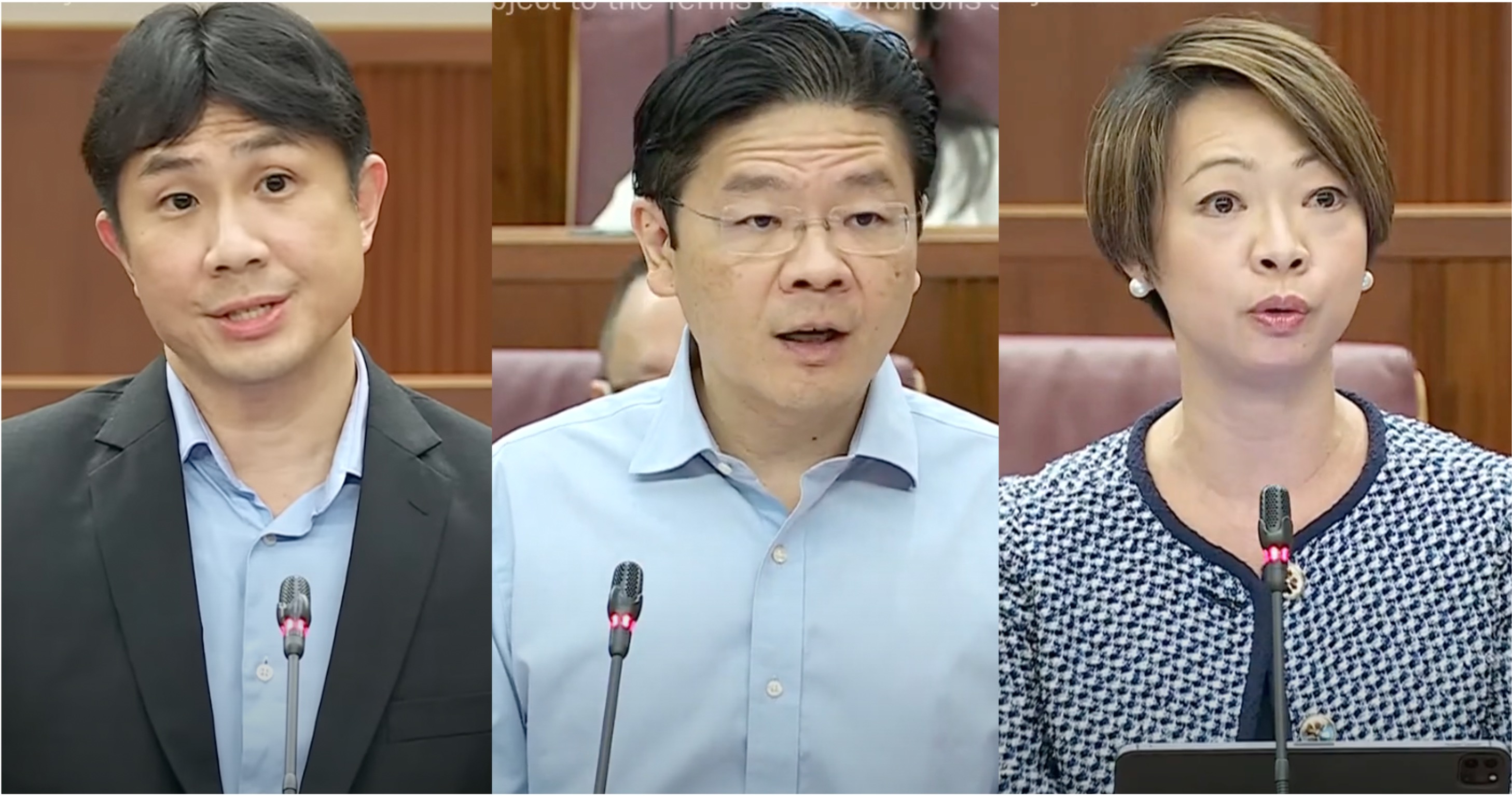Follow us on Telegram for the latest updates: https://t.me/mothershipsg
The Singapore government did take in an increased amount of revenue in Financial Year (FY) 2021/2022, but it should not rely on 'fluctuating collections' as a sustainable source of revenue for future spending.
It still remains to be seen whether the government will end up recording a fiscal deficit in FY 2021 and 2022.
Increase in tax revenue collection not sustainable over long term
Deputy Prime Minister Lawrence Wong addressed questions on substantial tax revenue.
PAP Member of Parliament Foo Mee Har noted that tax revenue collected in FY 2021/2022 totalled S$60.7 billion, and asked if this could help to defer the hikes in the Goods and Services Tax planned for 2023 and 2024.
Wong, who is also the Finance Minister, said that the government did take in around an increase of 22 per cent in tax revenue in FY 2021/2022, as compared to the previous FY.
However, Wong explained that the increase was due to a lower base in 2020, because of the Covid-19 pandemic. Therefore, the collection for the next year would note a higher increase once the economy recovered.
But the more pertinent reason, Wong said, was the collection of higher-than-expected "sentiment-based revenue".
This refers to purchases that are not made regularly, but are one-offs and driven by sentiment, such as property or new gadgets.
Stamp duty collection accounted for largest share of tax revenue increase in FY 2021
Wong noted, "In particular, stamp duty collection accounted for the largest share of the tax revenue increase in FY 2021. The property market has recovered at a much faster rate than many market observers had anticipated."
He made the point that the property market may not stay bullish forever, and therefore the government cannot rely on fluctuating, sentiment-driven purchases as a stable source of tax revenue.
He also said that the government has new spending needs, and used some of the tax revenue for short-term relief for businesses and families, as one example.
Govt still has increased spending needs
Wong also pointed to long-term spending needs, such as food resiliency and the green transformation, and said that new revenue measures including the GST hike were announced in his 2022 Budget to pay for them.
While the hike will go on as planned, Wong reassured the public that due to the support packages he also announced, the majority of Singaporean households will not feel the impact of the GST increase for at least five years. Lower income households will not feel the impact for 10 years.
He ended by saying that prudent management of finances is one of Singapore's strengths, and helped the country to emerge stronger from the Covid-19 crisis.
Difficult to predict property prices
Wong then fielded a couple of follow-up questions from PAP MPs Yip Hon Weng and Foo Mee Har.
Yip asked if the Finance Ministry could better project a more accurate estimate of expected revenue in the future.
Wong wryly said that if anyone has a way of predicting future property prices, they should let him know. He pointed out that all the market observers did not predict the strong recovery, and it is a fundamentally difficult revenue item to predict.
Foo then referred to previous reports that Singapore's fiscal deficit for FY 2021 was expected to be S$5 billion, with a S$3 billion deficit expected for FY 2022. In light of the large tax collection, she asked if deficits were still expected. Wong replied that it is still too early to tell, and both revenue and expenditure fluctuates from month to month.
However, Wong highlighted that the government's aim is not to accumulate surpluses, but rather to achieve a balanced budget in the medium term.
Government shares Singaporeans' concerns on inflation
Earlier, Wong addressed a question from Jamus Lim of the Workers' Party, who asked if the GST hike could be deferred due to rising inflation, and the fact that income growth has not kept pace.
Wong acknowledged that inflation has gone up this year and the government shares the concerns of Singaporeans.
Besides the S$1.5 billion support package announced in June 2022, the government has also been working with employers and unions to help their workers to become more productive, which will sustain real wage growth over time.
Low wage workers will also be buoyed by the expansion of the progressive wage model to more sectors. Wong added:
"To help businesses adjust in this challenging economic environment, the government is providing a transitional support of up to 75 per cent for employers to pay their workers progressive wages, and that is an increase from the previous level of 50 per cent."
This is in addition to the S$9 billion of transitional wage support for businesses, and Workfare enhancements.
Govt will consider doing more to help lower income groups if necessary to fight inflation
In a supplementary question, Lim said that the impact of inflation on real income growth was felt more keenly by the "very poorest" workers, and asked if their GST voucher payouts could be adjusted accordingly.
Lim also asked if MOF has performed studies to find out if the Progressive Wage Model payouts for this group would offset real income losses due to inflation.
Wong replied that the government was monitoring income growth at different segments of society very closely, and the packages he rolled out provided more help for the lower income groups.
However, if they still face troubles with higher inflation even after receiving the financial support, Wong said the government will consider doing more to help these households.
Top image from MCI YouTube.
If you like what you read, follow us on Facebook, Instagram, Twitter and Telegram to get the latest updates.
